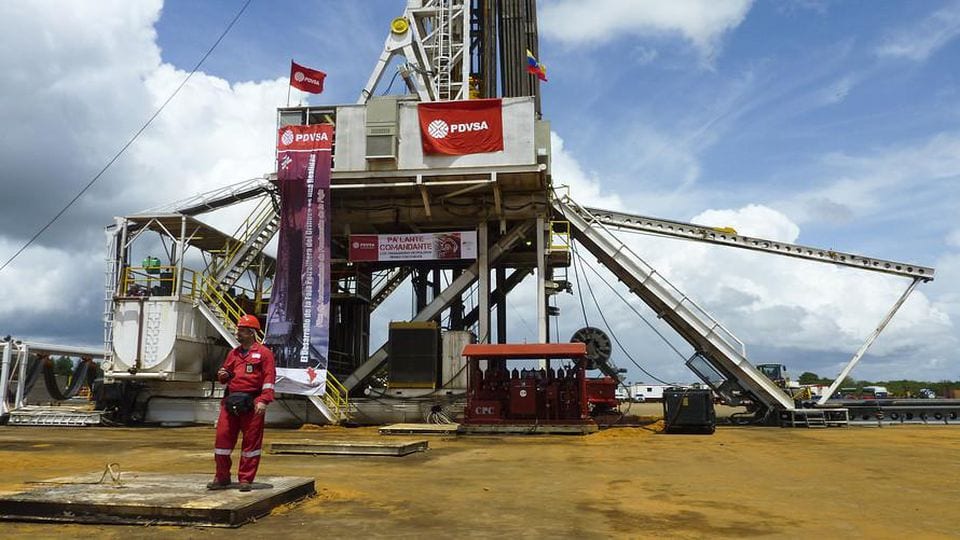(Rigzone) Fitch Solutions does not expect to see Venezuela’s oil output collapse and go to zero in 2019, according to the company’s head of oil and gas analysis, Joseph Gatdula.
The Fitch Solutions representative conceded that the oil sector in the country is showing “accelerating signs of stress” but said the company believes Venezuela will be able to sustain between 300,000 and 500,000 barrels per day (bpd) of exports, “mainly with Russia and China”.
Echoing Fitch Solutions’ view, the director of Apex Consulting Ltd, Muktadir Ur Rahman, revealed that his company does not expect a “complete collapse” of Venezuela’s oil sector this year either. The director added, however, that in the absence of a political solution, his company believes further “significant” production falls are inevitable.
According to Rahman, Venezuela’s oil output could fall to around 500,000 bpd by the end of 2019 in a worst-case scenario.
“On the other hand, it is possible to arrest this decline somewhat and in a relatively short time frame, if [the] political situation improves in 2019,” Rahman told Rigzone.
“This is because it would still be quite easy for the international oil companies (IOC) to bring production in the Orinoco basin back to its pre-crisis level once the power situation improves and it becomes easier for them to import diluents necessary to operate the upgraders,” he added.
“However, it would be much more challenging for Venezuela to improve the production of its ageing fields elsewhere, where lack of investment and years of mismanagement have caused production to decline very steeply, and in some cases, irreversibly,” Rahman continued.
Further exploration and development of Venezuela’s oil reserves would be crucial to bringing the country’s overall oil production back to its pre-crisis level, according to Rahman, who said to achieve this, Venezuela would have to partner up with IOCs.
“Given Venezuela’s recent history, this may not be an easy task, even though it has one of the largest oil reserves in the world,” Rahman said.
Upheaval Beyond 2019
According to Abhishek Kumar, head of analytics at Interfax Energy in London, Venezuela’s political and economic upheaval will continue to adversely affect the country’s oil sector in 2019 and beyond.
Kumar stated that recession and hyperinflation in Venezuela are set to continue for the rest of this decade and the Interfax representative said this will limit the government’s ability to invest in the country’s upstream “at a time when IOCs have already lost confidence in Venezuela’s oil sector”.
The country’s oil industry has had a checkered history since the heady period of 1970, according to PwC’s Director of Research, Adrian Del Maestro. According to Rahman, many would say Venezuela’s oil sector has been “crumbling for quite some time now”.
The Organization of Petroleum Exporting Countries’ (OPEC) latest monthly oil market report shows that, based on secondary sources, Venezuela’s oil output was 768,000 bpd in April. The country’s oil output stood at 740,000 bpd in March and 1.02 million bpd in February, based on secondary sources, according to OPEC’s report.
Venezuela’s oil production, based on direct communication, was 1.03 million bpd in April, 960,000 bpd in March and 1.43 million bpd in February, OPEC’s latest report revealed. Venezuela was one of the founding countries of OPEC back in September 1960. The Islamic Republic of Iran, Iraq, Kuwait and Saudi Arabia were the other founding countries of OPEC.
In a Twitter statement posted on January 23, U.S. President Donald Trump announced that he had officially recognized Juan Guaido as the interim president of Venezuela and labeled the Maduro regime as “illegitimate”. During the same month, Nicolas Maduro was sworn in for a second term.
At the start of the year, the Trump administration issued new sanctions on PDVSA that effectively blocked Maduro’s regime from exporting crude to the United States.



